Born in Iowa in 1958, Michelle Johnson retired from the United States Air Force a lieutenant general. Her 40-year career saw her serve as a pilot before going on to become Deputy Chief of Staff for Operations and Intelligence at NATO headquarters in Belgium and then Superintendent of the US Air Force Academy. A role as senior vice president and head of referee operations for the National Basketball Association followed and Michelle now serves as a board member for a number of organisations. This narrative is excerpted from an interview with the Rhodes Trust on 18 October 2023.
Michelle Johnson
Iowa & Brasenose 1981
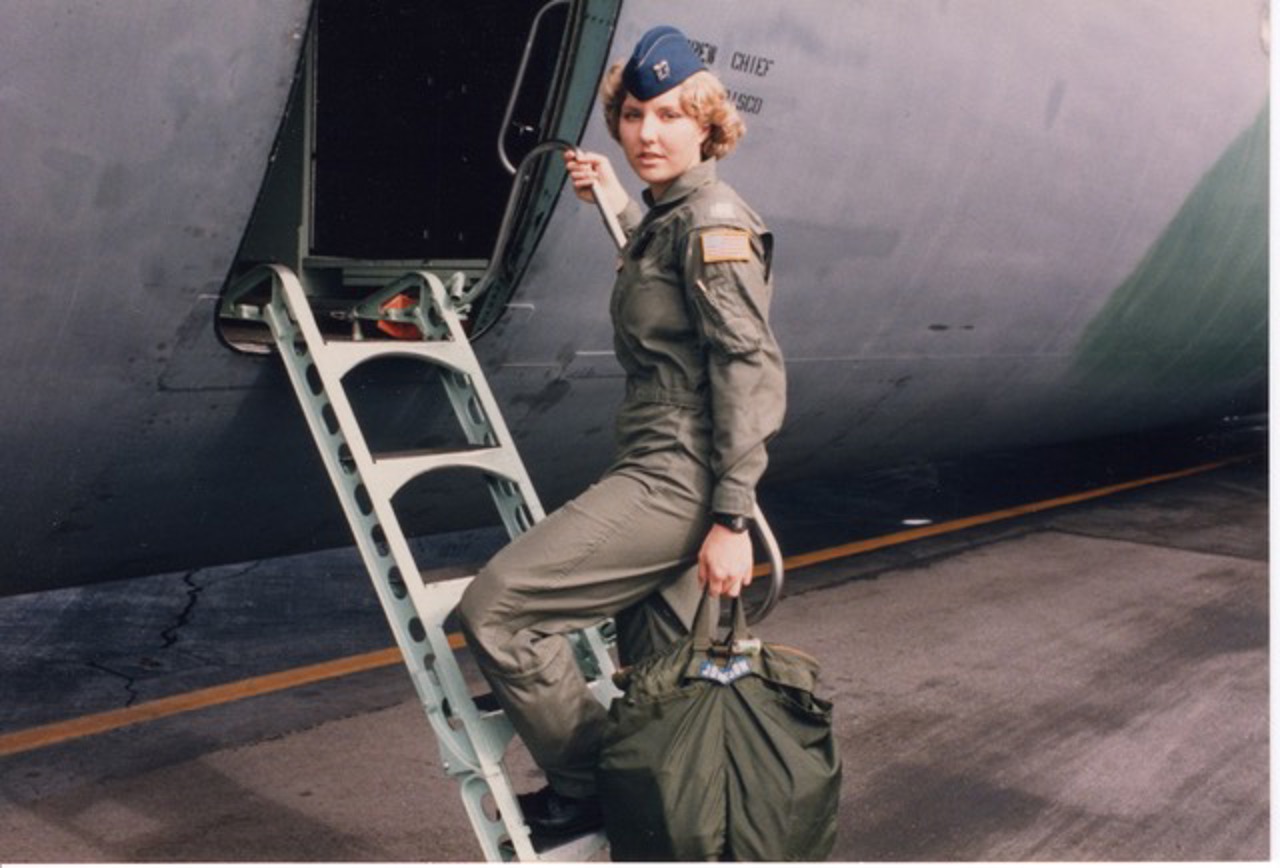
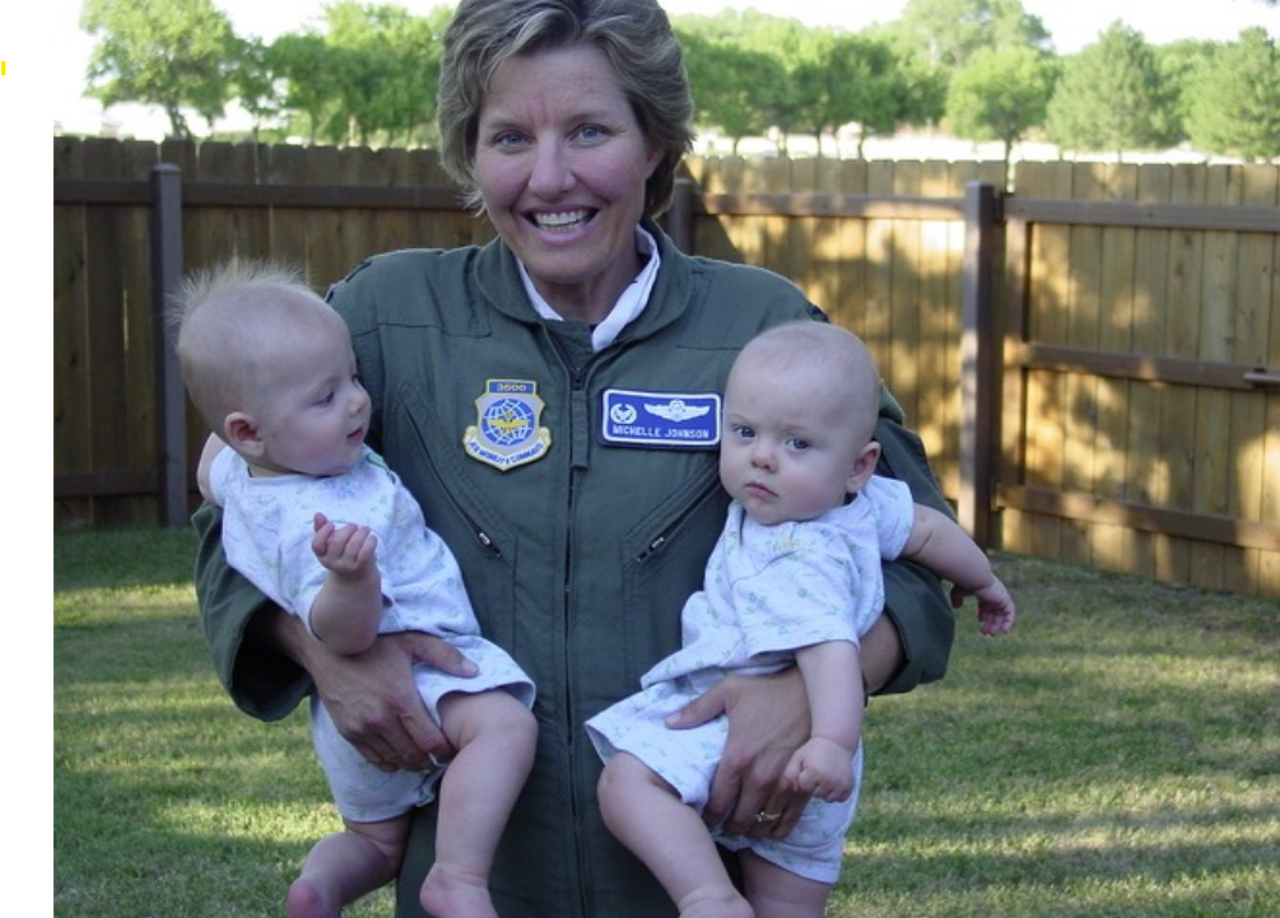
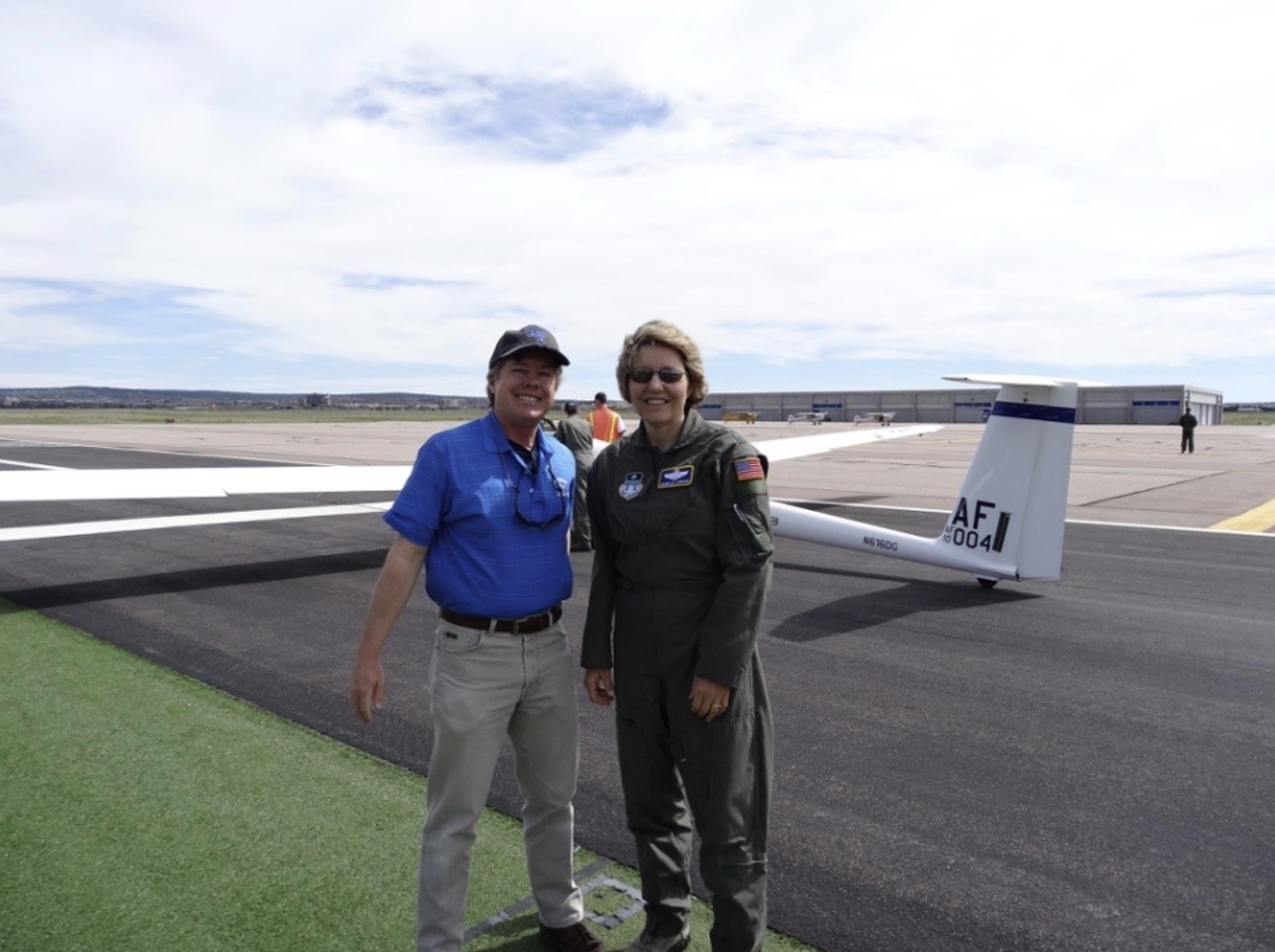
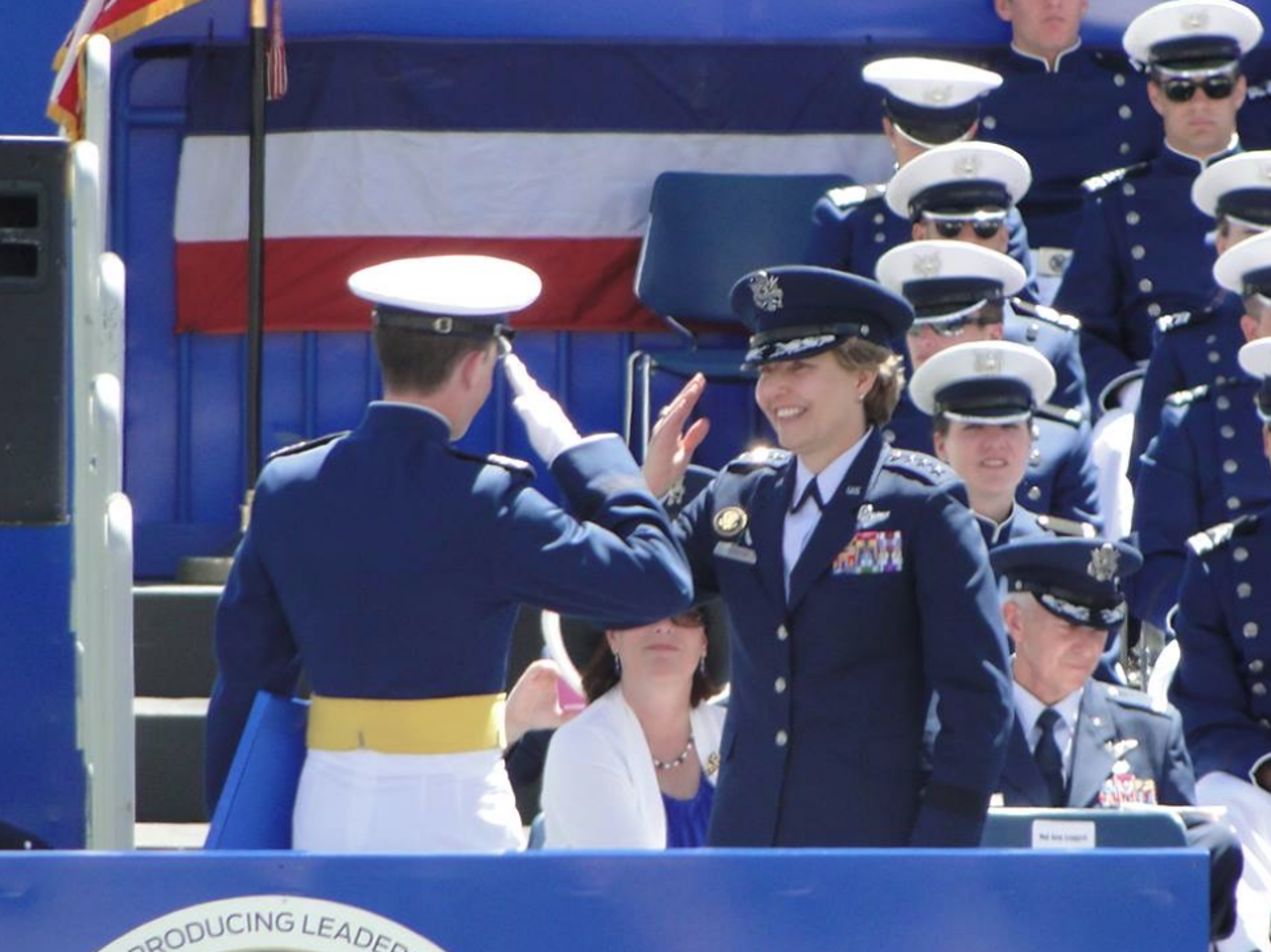
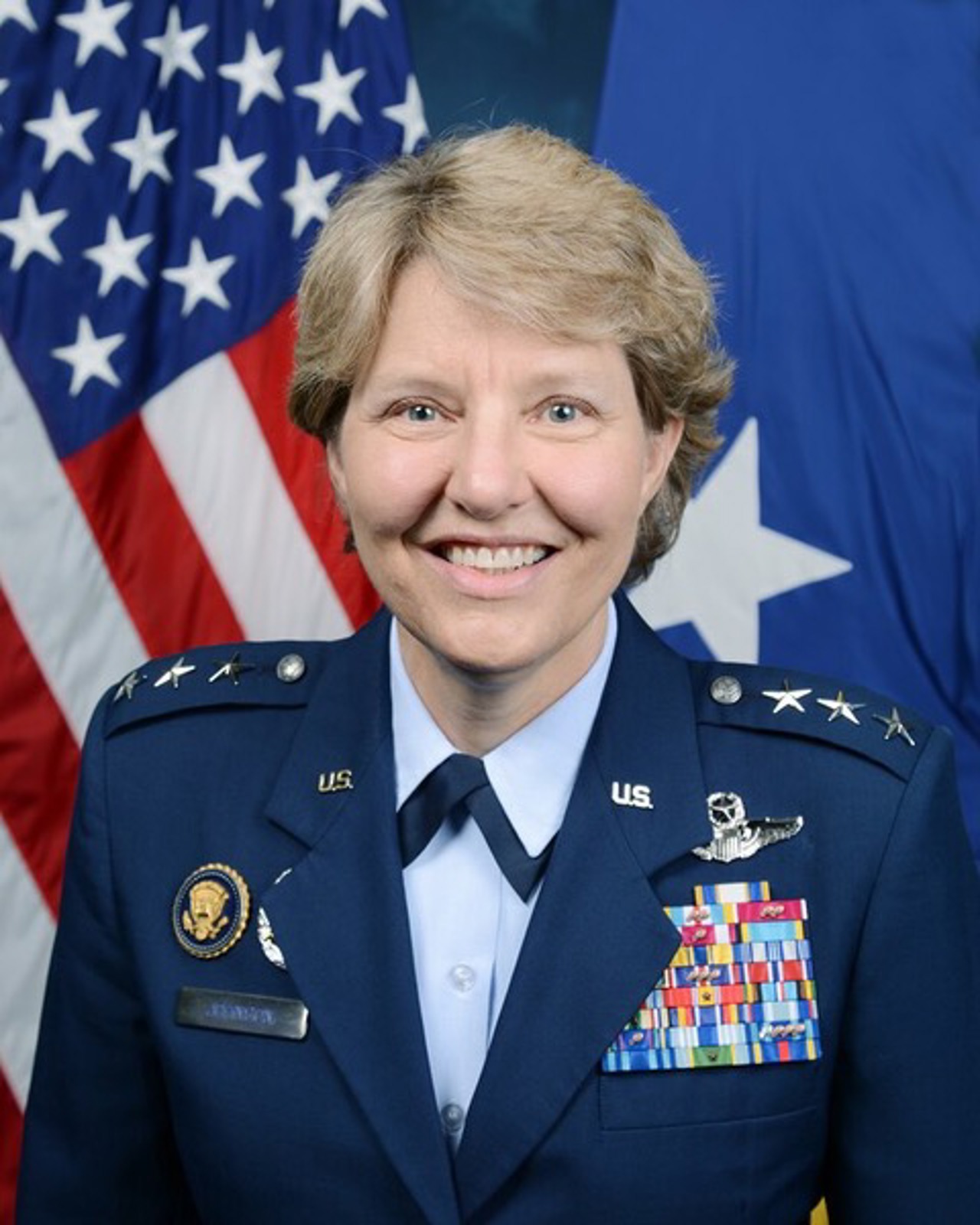
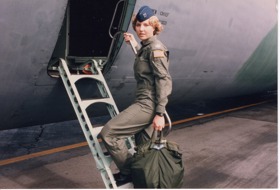
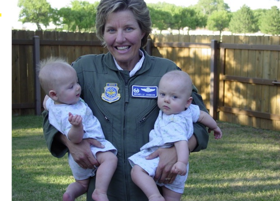
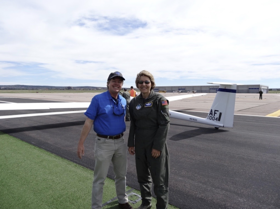
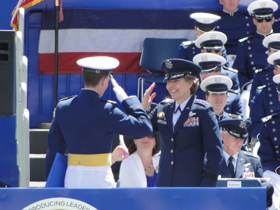
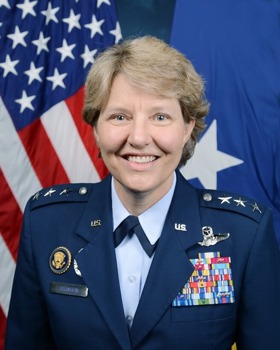
‘Take a chance’
I was born in Iowa and though my family moved away for a time, we came back and settled in Spencer, Iowa. My brother and sister were a lot older than me, so I probably have all the attributes of the youngest child and, in a way, an only child. I spent quite a lot of time by myself, in the fields and the pastures, and one day I noticed our neighbours down the road had a horse. I was a horse lover, so I would crawl over the fence and try to ride him, and I’d make it a few steps and then he’d throw me off. I had no tack at all, no saddle or bridle or anything. Finally, though, he threw me off hard enough that I got so scratched up I couldn’t hide it. I had to explain myself to my parents and they marched me down to our neighbours to apologise for trespassing and riding their horse. And all they said was, ‘You can ride Stormy? He’s blind in one eye. Nobody can ride him.’ So, to me, the lesson was ‘Take a chance. Hang tough, and it’s going to turn out alright.’
‘It really opened me up to the world’
When I was a junior in high school – this was 1976, so it was the bicentennial of the country – I took part in the Iowa Girls State, which is a model government programme. I didn’t win (people said, ‘We didn’t vote for you because you seemed too honest’!), but I did get to go to the Boys and Girls Nation in Washington, DC, and that really opened me up to the world. I was with kids who were my peers on a national stage. It made me a different student. My grades had always been strong, but now I had this willingness to talk in class and to wrestle with ideas.
For all that, I didn’t really know what my options were. Then, recruiters from the Air Force Academy came to my high school, and it seemed to me that it would be a good place to get a strong education and to play some sports and then serve for a while. I was in the second year of women admitted to the Air Force Academy, and not everybody was happy that we were there. Even some of the faculty said, ‘You don’t belong here’. It was a real shock. Some people couldn’t imagine a woman being an officer, being a pilot, being a leader. I remember when I was younger, looking out over Iowa at the hills and big skies and wondering what was in the big world out there. How would I get out there? I couldn’t immediately see a way, but I was open to the possibility. And then, the day I graduated from the Air Force Academy, I saw that my dad was crying (and he was not a man for tears). He said, ‘I could never have imagined this’, and he was so proud. That was a lesson for me: the stark contrast of people who can’t imagine something different and therefore react with hate and fear, as opposed to those who say ‘I can’t imagine that. Let me think about it, sort it out, see what I think.’
On applying for the Rhodes Scholarship
I should say that there were also many really supportive faculty at the Air Force Academy. I was lucky enough to be mentored by Colonel William Stackhouse, and he was the one who said, ‘You should think about competing for a Rhodes Scholarship.’ And I was there, this kid from Iowa, thinking, ‘What do I know about that?’, but he said, ‘No, seriously’. So I did, and when I got to Oxford, there were so many new experiences for me, but one was just the amazingly dramatic physical difference in my day compared to the rigidity of the Air Force Academy. I was in control of my own time. I could work ahead if I wanted to and there was the flexibility to see friends for tea or lunch, or even to take a trip away for a few days.
The travels that went around my studies were incredible to me and so were the friendships that I made. And Brasenose was a great home. It was good to have Rhodes friends, but the experience isn’t just about Rhodes Scholars. It’s about opening up to everything Oxford offers, having neighbours who are from a different background, learning from them. All of that was invaluable. I read politics and economics and was lucky enough to be taught by Vernon Bogdanor. My only regret, academically, is that I didn’t also have time to study philosophy. Your life at Oxford goes by at a thousand miles an hour.
After Oxford, I went to Williams Air Force Base in Arizona to learn how to fly a plane. I flew mobility airplanes for transport and tankers, air refuelling and cargo, and I found myself going all around the world. In two or three years I was an aircraft commander, and that level of leadership was all about solving problems and helping other people be ready to do what they needed to do. Many people don’t fully understand that military leadership isn’t about barking orders. I’ll admit, I’ve barked sometimes, just to get someone’s attention because my voice isn’t that deep. But the kind of leadership I’m talking about is the leadership of caring about people.
As Lisa Simpson said…
I went back to the Air Force Academy for a time, as an instructor. It was a tough tour. There were still some people who thought ‘Women can’t do this, and if you can, there’s something wrong with you.’ I remember being really frustrated, and storming out of the house one day to go to work, and I my husband handed me a piece of paper. I opened it up and it had my name on. ‘Don’t forget who you are’, it said. It really helped me. And when I asked where he’d got the idea, he told me he’d seen it on The Simpsons!
Then, they were looking for Air Force aides to the President. I had all the credentials, so I threw my hat in the ring, and I carried the football for President Bush 41 and President Clinton (Arkansas & University 1968). I was the first Department of Defense woman to do that, and it was a wonderful experience. After that, I flew KC-10s for air refuelling. My husband and I had to live apart a lot because he was also in the Air Force and we were both on different tours. Finally, we were able to live together and I had our twin boys when I was a wing commander in Kansas in 2002. My husband had been a flight test engineer and a pilot and deployed with the marines, so he figured he was qualified to be a stay-at-home dad, and that’s how our family survived, with John as our stay-at-home parent who took care of all of us.
It wasn’t long after that that I was diagnosed with MS. I’m lucky that I’m very lightly, almost imperceptibly impaired, but I was grounded from being a pilot. That gave me the chance to focus on leadership in other roles, including at NATO. And then, when I found myself back at the Air Force Academy as Superintendent, I was able to bring some of those leadership skills to bear in helping to open up conversations with students and faculty about diversity and support. When I retired, I took on something completely different, working to support referees through the National Basketball Association. And now I’m able to work as a volunteer for things that have particular meaning for me, including an organisation for veterans.
‘Excellence does not require perfection’
What motivates and inspires me is those acts of community, acts that bring us together. For me, that’s what the Rhodes Scholarship is about too. I serve on one of the selection committees for the Scholarships and I’m always so encouraged when I see personal statements that emphasise building bridges and building community. What is a Rhodes Scholar? We all judge public service in different ways, but fighting the world’s fight, for me, is about taking a step back and asking ourselves what we’re trying to do here. How do we connect? How can we join together and use our moral courage to solve today’s problems?
The best advice I could give today’s Rhodes Scholars is to remind them of something Henry James is supposed to have said: ‘Excellence does not require perfection’. There were times when I beat up on myself because I wasn’t perfect. Now, I just try to do a little better every day. In other words, don’t ever let perfection get in the way of excellence.
